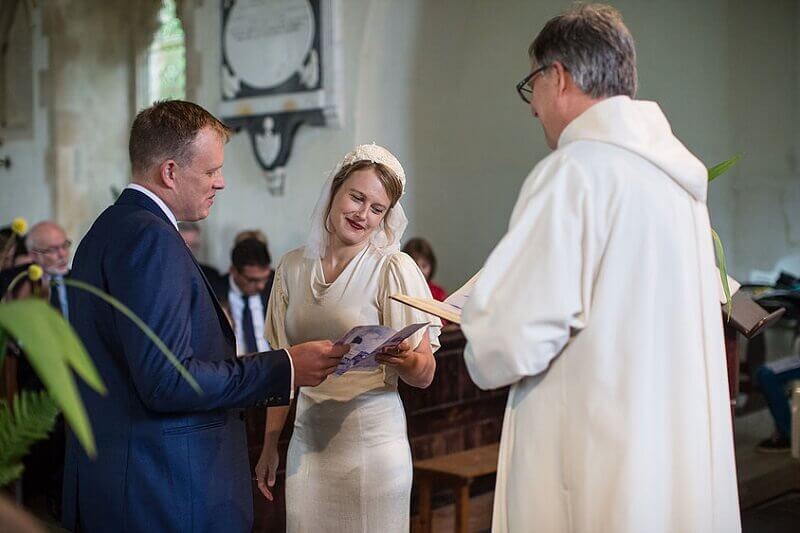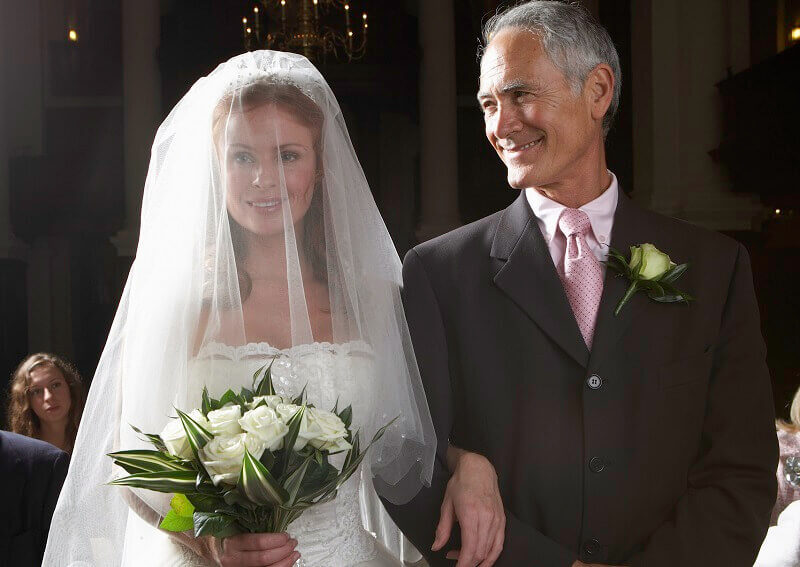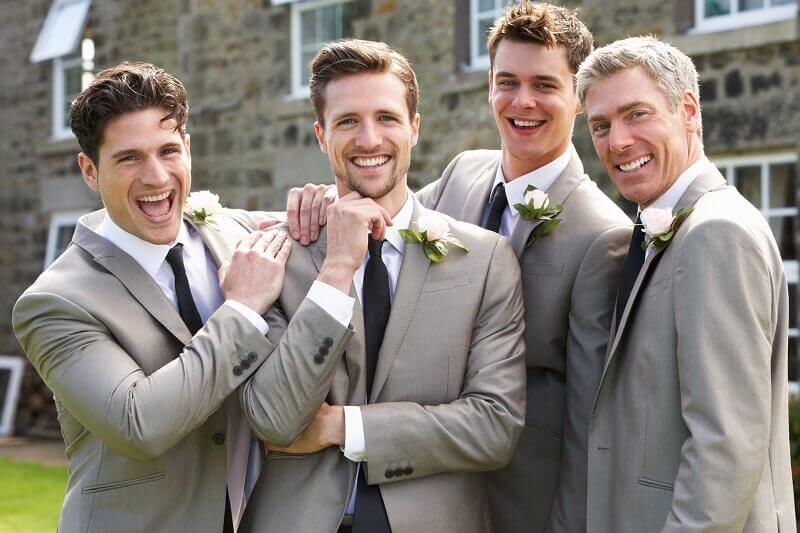Which Wedding Traditions & Superstitions Still Apply?
If ever there was one social event where new and old were completely mixed in the same pot, it would have to be the wedding. But which of the time-honoured traditions still apply? For every custom that endures as romantic or endearing, another looks rather dated.
So which wedding conventions should you still say “I do” to? That could depend on a range of reasons, from age and culture to the location. Here are some of the habits most often questioned by today’s brides and grooms:
1. The bride’s family has to pay the bill

Depending how you look at it, this wedding tradition is either terribly dated or absolutely brilliant (if you are the parents of the groom, presumably). So in the year 2018, as opposed to 1818, should the bride’s family pay for the wedding?
For most couples this idea might seem dated for a few reasons . The main one is that this protocol dates from a time when women were a lot more restricted by social norms. The payment was almost a form of compensation, acknowledging that the wife would not earn her own income.
Does it still apply? Today, most families share wedding costs between them, as they recognise the bride and groom as equal partners. This is not uniformly agreed across cultures and generations, however. The golden rule therefore has to be fairness and agreement between the families.
2. Traditional marriage vows vs personalised vows

Will you go with tradition, or customise your vows? (Image: Oliver Wong Quinnell)
Even if we’ve never been married, most of us virtually know these classic lines by heart. The sentiments about sickness and health; love, cherish, honour and obey. And, of course, the bit about “any lawful impediment” so beloved by romantic comedy writers, when someone throws a spanner in the works at the last second.
Does it still apply? If you want something timeless and traditional, the original script has stood the test of time for good reason. However, there is nothing wrong with personalising your vows if it makes them more poignant and resounding to you as a couple. You could make them heart-stirringly romantic, cute or even humorous. Suffice to say, the best wedding vows are those that bring you together in loving, personal commitment, not in cold recital.
3. Asking the bride’s father for her hand in marriage
Another old marriage custom, you might view this as either sweet and traditional or decidedly old hat. To some 21st Century couples, it smacks a little too much of ownership, as if the groom was asking to become Kate or Alison’s new leaseholder and give daddy a break for the foreseeable. And, heaven forbid, what happens if husband to be and future father in law are like chalk and cheese?
Does it still apply? Funnily enough though, this is one tradition that retains a certain charm and still has its adherents. If ever there was a custom that could be read one of two ways, this is probably it. Those of a traditional romantic persuasion, there is something quite honourable and trusting about the groom asking his beloved’s father for a blessing. Indeed, even millennials seem to think this is a nice touch and bodes well for family relations, although usually this will no longer be a case of “will you let me…?” as “we’re keen to marry and wanted you to be the first to know”.
4. The groom should not see the bride before the wedding ceremony.
One of the classic wedding superstitions. “It’s unlucky” to even lay eyes on each other before the actual ceremony, some have it. Put it down as an old bit of hoodoo if you like then, but a lot of couples still swear by it. Everyone wants a good luck wedding, right?
Does it still apply? This wedding tradition is a real survivor, judging by most 21st century couples. Ok, so they may not think it’s instant bad luck to see the wedding dress or meet up on the morning before vows. However, there is very definitely something to be said about building the anticipation and you can only have that first wedding day glance once.
Perhaps if you are a bit of a nervous wreck, some moral support for each other on the morning could be just the thing and you can ignore the above (you won’t have bad luck- and you could still hide the wedding dress to keep the surprise). For the rest of us though, this tradition is a keeper, although this probably has more to do with the magic of surprise than any fear of bad luck.
5. The bride must be escorted down the aisle with her father

“What’s that daddy? You’re going to give me away? That’s generous of you. Is it a straight gift or part-exchange?” Heralding from a time when, strictly speaking, a girl was her family’s property, this custom has its roots in quite a different era. But surely it means something quite different today?
Does it still apply? At plenty of weddings today the bride is still “given away” by the father. For ladies with a close bond with dad, this can be a moving and important gesture. However, only tradition dictates that it has to be dad. Modern brides can be escorted by their best friend, their mother or any trusted confidant these days.
6. Bridesmaids and Groom’s entourage to wear perfectly matched colours, flowers and clothing.

Are these old marriage conventions a recipe for colour-coordinated harmony, or chaos and high rental fees? Weddings certainly bring out the meticulous side of couples. Some will even get the jitters with this, as if the wrong shade of turquoise could lead to social and financial ruin. In fact, a surprising amount of colour superstitions stick to this day, from “something borrowed, something blue” to areas where yellow flowers are said to bring bad luck. Yes, really!
Does it still apply? This probably depends more on your taste and sense of formality than anything else. If you love old school elegance, sure you are likely to be investing in a serious sartorial matching exercise. However, if you want to play things more relaxed or detest stiff formality, why does it have to be so draconian? You could always pick a less dictatorial theme for the day. For example, at a summer wedding, why not allow two or three colours rather than just one. And do the grooms pal’s all need an identical waistcoat?